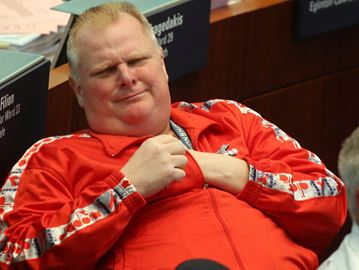The HOV Lanes have been a hit and miss the past couple of weeks since their instalment on June 29. Many people have complained about squeezing into the middle and right lanes during rush hour while the left lane has been largely unoccupied; and high profile folk like Rob Ford have admitted to using them when driving alone in their vehicle.
When you think about it, the HOV Lanes require an inherent ethical agreement, namely to avoid using them if you the number of occupants in your vehicle is less than the minimum of 3. And without proper monitoring of the lane that, for example, cameras would create, it is a simple social contract that one tacitly enters.
But what keeps people from following the rule? Is it simply the fine of $110? If 1,000 cars started taking the HOV lane, would all 1,000 be pulled over? No, of course not. How many could be logically and practically caught? A very small percentage.
Wheels editor for the Toronto Star, Norris McDonald, highlighted this issue in a recent post, lambasting drivers, like Ford, who cheat on the HOV lanes. The logic is that since he chooses to abide by the rule, everyone else should. And his other point is well-noted, namely that without adequate monitoring of the lane, there is little expectation, beyond the flimsy social contract, for everyone to abide by it.
But isn't this like life itself? Are you monitored all the time when you make decisions that will impact someone's life, say for instance, keeping the extra money when the cashier makes a mistake and gives you too much change; or when you are not charged for an item at the store and walk out knowing the cashier made a mistake without going back and settling it ethically? Or how about lying to someone? These are just scratching the surface of a system of social contracts we enter into, and often break, everyday. The HOV lanes are a simple example, a microcosm (small world) of life at large, of this system, and as such may give us a glimpse into the ethics of those people who, while completely annoyed and frustrated by idling in the other two lanes, choose to abide by the rule.
Are we then to conclude that all those who avoid using the HOV lanes when under-occupied are people with high ethical standards? While it may be contentious, it wouldn't be too far out to presume.
And, if the HOV lanes are in fact a standard for behaving ethically in other areas of life, then what can we conclude, overall, about Mr. Ford?


No comments:
Post a Comment